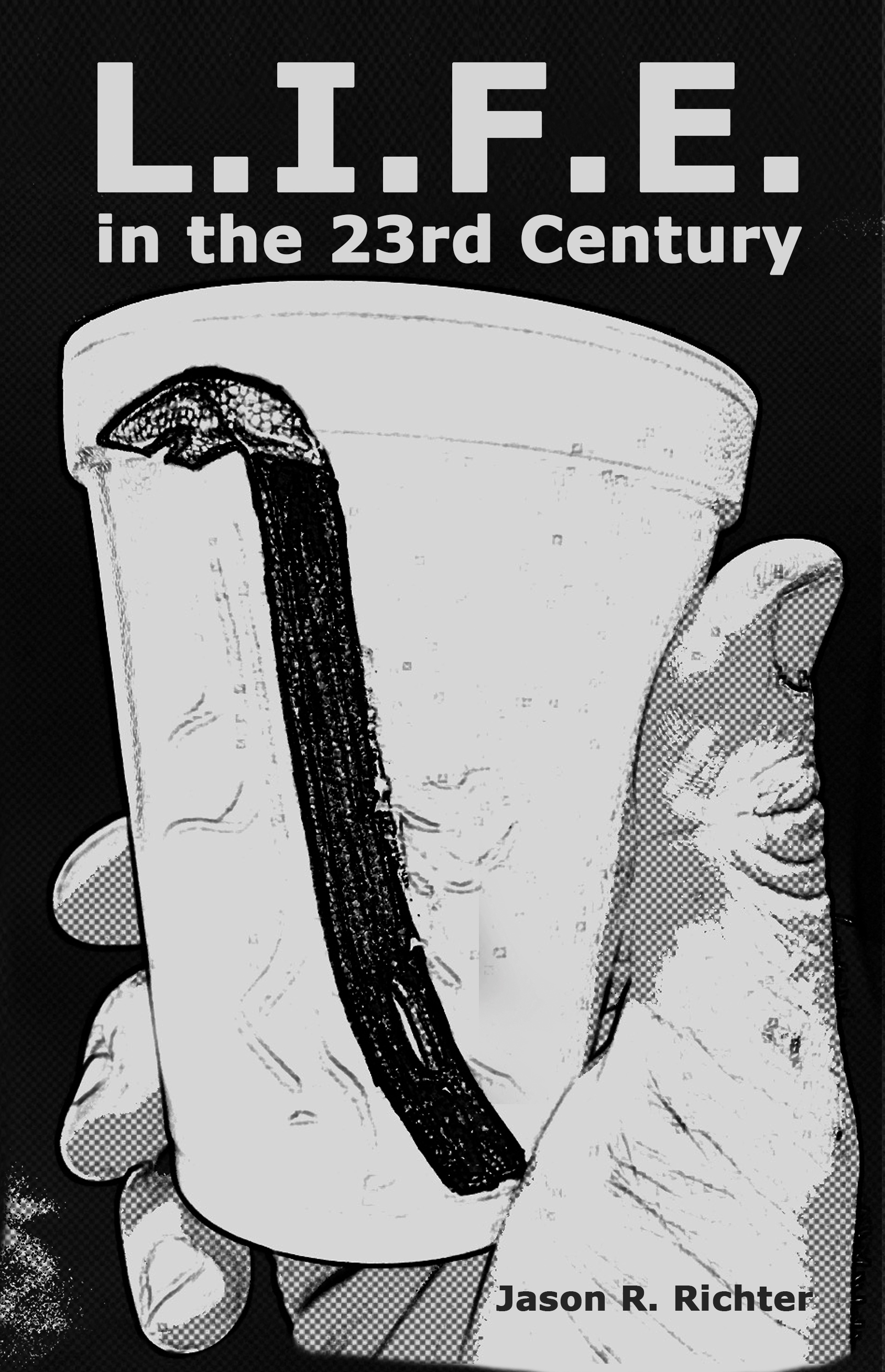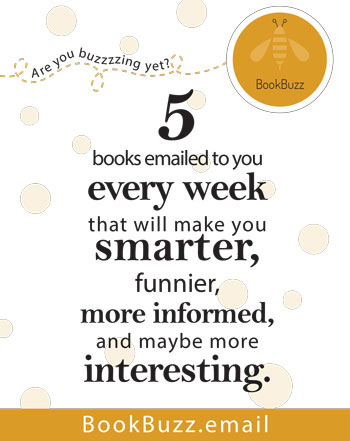Tell us a little bit about yourself and how you came to write your book.
I have been writing since the 7th grade, when I attempted to write my first novel in the third subject area of a three-subject notebook. It was as dreadful, as you might imagine. Before the advent of smartphones, I always had a steno notebook close at hand.
A few years after I left the Marine Corps, my roommate introduced me to one of his coworkers who was the president of a local writing critique group–The Fort Collins Penpointers. This was at the beginning of 2002 when I started taking my writing seriously. Most of my previous novel ideas were picked apart by the group, and I defaulted to writing short stories, but on the lookout for a good novel length idea.
The initial idea for L.I.F.E. in the 23rd Century came while I was at work about a year and a half after the 9/11 attacks. Part of my job was to call the company’s home office and check the status of orders. The phone I used didn’t have a speaker, and the cord was very short, so I would have to hold the phone to my head sometimes for an hour listening to hold music and commercials for the company I worked for. After months of this, the absurdity started to affect my thoughts. I was an employee of a company, and that company was bombarding me with commercials as if I were a customer. I had recently watched The Empire Strikes Back and wondered “Did Luke have to listen to commercials about the hospital ship while he was in sensory deprivation recovering from getting his hand cut off?” That made me chuckle. I grabbed a stack of sticky notes and wrote the first chapter while sitting on hold. I submitted the chapter as the first half of a short story to the writer’s group, and they all told me that this was the novel I should be writing.
While I was expanding what was initially a short story into a novel-length piece, there was nothing but War on Terror all over the news. You either agree with everything we say or you’re a terrorist. We’re going to bomb this country into the Stone Age and the company that the vice president used to run is getting the contract to rebuild it. Bill O’Reilly being Bill O’Reilly.
The novel went through several different versions. It was updated when iPhones came out because they made the initial technology in the novel laughably obsolete. Then a different version after Obama was elected (there was a lot of jabs directly at George W. Bush that seemed dated after he left office).
In the meantime, I wrote another novel, Mating Rituals of Migratory Humans, that was published in 2013. At the launch of that book, a former writer’s group member asked if I had ever finished L.I.F.E. and asked if he could read it. He gave me a lot of notes, which got me excited about trying to finally get it published.
The book was meant to be released in the fall of 2016, but due to setbacks, did not come out until the spring of 2017. I say that because a lot of the book deals with fake news, spurious terrorist attacks, a giant wall around America, a billionaire in the White House that starts wars to improve his stock portfolio–things that we are hearing a lot about now. At what point does dystopian science fiction morph into non-fiction?
What was this book about, and where did your decision to write it come from?
The book is dystopian science fiction, and I wrote it mainly to amuse the members of my writer’s group and to see if I could write a novel-length piece.
How long did it take you to write the book?
The initial chapters were written in 2002. The first draft was completed in 2003. Then I shelved it because I didn’t like the ending. I edited it again in 2007-08 to update all the technology, then shelved it because I still didn’t like the ending. I broke it back out in 2013-14 at the insistence of a former member of my writer’s group and he gave me a lot of ideas on how to improve it and I finally came up with a satisfying ending. So, it took me one year or it took me a decade. Your choice.
Did you have a publisher or agent? If not, was it by choice?
I had some minor success with getting short stories published. I assumed that publishing is publishing and that the novel market would behave in the same way as the short story market. This is not the case. For example, you send a short story out, you get an automated response saying that it was received and your expected wait time and before the end of that period you get a thumbs up or thumbs down email from the publication. If it’s thumbs down, you reformat and send it to the next publication. If it’s thumbs up, you get a contract and eventually a contributor copy and a check in the mail. I’ve had a half-dozen short stories published, and every publication I worked with was quick and to the point.
For novels, you have to come to terms with the sound of silence. Most publishers will not deal directly with writers. The ones that do, even if they specifically ask for–in my case–a humorous dystopian science fiction novel, will say that my novel is not what they are looking for if they say anything at all. Generally, if you send a submission to an agent or a publisher (using their exact submission guidelines), you get the automated submission received email, then…nothing.
“If you don’t hear from us in 90 days, send us an email.”
Email sent at 90 days.
“We’re still working on it.”
“If you don’t hear anything after 4-6 Olympics, we’re not interested and we’ll allow you to submit to other agencies / publishers.”
My first novel, Mating Rituals of Migratory Humans, was published by an independent publisher in Colorado–Pernicious Press. They wanted to publish books with adult themes and erotica. Mating Rituals fit that bill, in that it had a lot of graphic sex, but saying anything in the book was erotic would be a stretch. Their sister company, Dark Silo Press, publishes horror and thriller type novels and novellas. When it came time to publish L.I.F.E., the owners of those two presses were not interested in science fiction, but they were interested in giving me all their knowledge about running an independent press. I used Kickstarter to raise funds to start Diskordian Press, which allowed me to hire professional editors, layout designers, graphic designers, and to get the book professionally reviewed.
In the future, I may consider using an agent or working with a well-established publisher for wider distribution, but for the time being, I’m doing it solo and not splitting the profits with anyone.
Did you use anyone to help with the finished design? Editors, cover designers, etc.?
The finished product was the result of a lot of different people. I was given the name of a freelance copy editor by the owner of Dark Silo Press. My friend, Tom, who is an exceptional artist, did the cover art. 52novels.com did the layout for the paperback and ebook versions. I found a graphic designer on fiverr.com that did the cover design and layout. I did everything that a big publishing outfit would do, but my “staff” was spread all over the planet and not down the hallway. Even though the publishing company I started is publishing my novel, I don’t think of it as “self-published.”
When did you start preparing to market your book? What kind of research did you do?
I’m still working on figuring out an effective marketing strategy.
What is the difference between your book and other books on the subject?
When I was writing the book, I was watching a lot of episodes of The Prisoner (70’s British surreal spy show–possibly the best television show ever made) and Monty Python’s Flying Circus. Most dystopian novels are very grim and desolate, with the protagonist being broken (1984) or killing himself (Brave New World). I felt like the never-ending aspect of the War on Terror and all the propaganda surrounding it was grim, but it was also absurd on several levels. I wanted a dystopia that was absurd. My elevator pitch for the novel has always been “1984 but directed by Monty Python, not as dark as Brazil, not as absurd as the Fish-Slapping Dance.”
Did you use any paid advertising or posts? Did you use social media, guest posts, interviews or other personal marketing?
When I was in the midst of my Kickstarter campaign, I paid to have some of my posts promoted on Facebook. I attempted to do the same on Twitter, but their promoted posts are astronomically expensive. The Facebook posts didn’t really do much good.
Where did you get your first reviews for the book? How did you discover which places to get reviews?
In my research, I found an article written by someone who had used almost every professional review site when his book came out, the pros and cons of each, prices, submission guidelines, etc. I selected Kirkus, San Francisco Book Review, Manhattan Book Review, and Online Book Club.
Online Book Club was a selection, because they had given my first novel, Mating Rituals of Migratory Humans, a very good review, and they were relatively inexpensive. I would not recommend them. The initial review of L.I.F.E. in the 23rd Century was in broken English and grammatically incorrect from start to finish. I wrote an email to the admin of the website, and they took the review down and upgraded me to a Tier 4 review (I had paid for Tier 3). This promised more exposure and more time as a featured review. The review was allegedly going to take 2 months. I submitted the review request in September, the initial review wasn’t completed until the end of December. The second review was not completed until the end of February. The second review, 4 out of 4 stars, was grammatically correct, but I’m not sure either of the reviewers read the book. The main character dies, not a spoiler, it’s on the back of the book, and it is mentioned at least five times that he is crushed to death while driving his car and decapitated. It’s the future, so that’s like setting a broken bone. The review claims that he is standing near his car when the car accident occurs and winds up in the hospital instead of driving his car and being crushed. Both reviews were tepid, hard to blurb, and even if they had been quotable they took far too long to be included on the cover. I am frankly embarrassed by the review and (other than you good people) have not mentioned it to anyone.
On the other hand, Kirkus, San Francisco Book Review, and Manhattan Book Review gave me excellent reviews in a timely manner. They were more expensive, but I think it was worth every penny. My novel was also featured in the January edition of the Kirkus Review magazine, which, as an independent author/publisher, is not something you can pay for.
What marketing event or plan was your most successful? How did you come up with the idea, and how did you execute it?
At the book signing for my first novel (Mating Rituals of Migratory Humans) there were twelve people in attendance. One was my wife, and one was my brother. So ten–there were ten people in attendance. It was at a small bookstore here in Portland called Mother Foucault’s.
My goal for the release of L.I.F.E. in the 23rd Century was to get more than twelve people to show up.
The novel is dystopian science fiction. There’s a local vodka distillery called Dystopia Vodka. I reached out to the owner and asked if he’d like to provide cocktails for the signing, because they often sponsor art and music shows. He agreed.
I reached out to a local doom metal band called Menin, because most of their songs are based on their favorite science fiction novels (and, full disclosure, I know the bass player). I gave everyone in the band a copy of the book, and they were all on board.
The President (Orange-45, the Tangerine Tyrant, etc.) somehow got an advance copy of my book and thought it was non-fiction and started enacting a lot of the dystopian events that my book describes–fake terrorist attacks, made up news, a wall around the country. Because of this, I wanted to get involved with some organization to counteract his policies. I reached out to the local Planned Parenthood chapter and asked if they could send a volunteer to take donations. They agreed.
Normally, I knock a couple dollars off the cover price and sell the books for an even $10. At this event, I raised the price to $20–half of which went to Planned Parenthood–everyone got free Dystopia Vodka Moscow Mules, Menin played a very heavy acoustic set, and I read the prologue of the book with them playing in the background. Planned Parenthood raised close to $400, as about 40 people attended, not including the band.
Everyone seemed to have a good time, including the band, the Planned Parenthood volunteers, and the owner of Dystopia Vodka. Not to mention the owner of the bookstore, who did a very brisk trade before and after the event. All of them are willing to do it again next time. Also, I had everyone sign up for an email list for my publishing company. I think the email list, if I continue to grow it, will be the best takeaway from the whole affair. My goal is not to sell a million copies of this book and cash out. I intend to do this for a long time and have more people in attendance at the next event. Then more at the one after that.
What did you do that yielded results?
Going back to when I was running my Kickstarter campaign, I found that if I shortened links with bit.ly, I could track how many people clicked through each link. I made one link each for Twitter, Facebook, and email correspondence. I used the Crowdfire app to build followers on Twitter and to auto-tweet at high traffic times. On Facebook, I made a page specifically for the novel and posted on my timeline and on the novel’s timeline. I contacted friends either via email or through text and Facebook messenger.
Twitter, in my experience, is useless for promotion. The bit.ly link I’ve used for the last year on Twitter has less than ten clicks. I have an author friend that has 20k followers–most of whom are authors. Whenever I post about my book, he retweets. However, whenever anyone posts about their book or project, he also retweets. It is the equivalent of driving 75 mph on the freeway and every car that passes in either direction is shouting about their project while you’re shouting about your project back at them.
Facebook was better. My friends (authors and otherwise) would share my posts. Generally, if they said “Remember Jason? He wrote a book, you should check it out,” people would check it out. If they just shared with no text, no one had any context and just scrolled by.
Email was hit and miss. Group emails, groups texts, and group Facebook messenger messages are generally discarded out of hand. If I sent a personal email, those got a response. If I started a conversation via text or messenger, those got a response.
I’m working now on setting up an email newsletter with Kickstarter backers and book signing attendees on MailChimp (which is free). You’re able to track who reads the message, who unsubscribes, who clicks the links. I think that will be a major boon if I maintain it. The newsletter is primarily to get people that have bought the book to review the book on Amazon and Goodreads.
Imagine an archery target. Initially, I thought I would say “Hey, I have a Kickstarter campaign” and I would get my core group of friends and family, the center of the target, to immediately jump on board. Then I could focus on those acquaintances in the next ring out and, eventually, I would get friends of friends in the outer ring on board. What I found was a very small core in the center of the center ring that was bought in immediately, then I had to explain to the rest of the core group what was going on and what my expectation was, what I needed them to do to assist me. Then I had to do the same with the acquaintances, and I never really got to the friends of friends in the outer ring.
The newsletter, in theory, should solve some of this for future projects.
What are your book sales like?
My first novel, Mating Rituals, was released in October of 2013. According to my publisher, it has sold around 300 copies. That’s a combination of paperback and ebooks on Amazon and via hand sales and book signing events in Oregon and Colorado.
L.I.F.E. was released in March of 2017. Between the Kickstarter backers, the book signing in Portland, and hand sales, I’ve sold 125 books. Amazon sales figures are quarterly, and I have not received those numbers yet.
What books influenced your writing and your book marketing?
Chuck Palahniuk’s early books are a major influence. When I first wrote L.I.F.E., I was taking a writing course on his website to work out a more minimalist style. That’s a big cornerstone of my writing, but I read so many different types of books by so many different authors, I wouldn’t say Chuckie P. is my sole influence. Agatha Christie, Robert Crais, Terry Pratchett, Mickey Spillane, Cormac McCarthy, Douglas Adams, Robert Anton Wilson, Philip K. Dick, Haruki Murakami, Kurt Vonnegut, Harry Harrison, Charles Bukowski, and a lot of Monty Python.
As far as marketing, Zombie Marketing by Jack Larson changed how I think about marketing and refining my goals. With the ease of self-publishing and the shrinking world of brick and mortar bookstores, it’s not really about the one great novel and the big paycheck –– trick some publisher into a huge advance and sell the movie rights. I’m more into the “long con” at this point. Each book does a little bit better than the last, and I expand my base.
The most important page in my book isn’t the first page. It isn’t the last page. It’s the page that says “Also by Jason R. Richter…”
I should also give a shout-out to Brian Kaufman of Dark Silo Press. Though he has not written a book about book marketing, he probably should. He is my Yoda when it comes to anything book related. And he writes terrifying horror novels that you should check out.
What tools do you use for marketing or writing?
I use Scrivener for writing. It’s the best way I’ve found to keep my writing organized, get an outline going when the “flying by the seat of my pants” stops working. My current project is the 12 Labors of Hercules in a corporate retail environment, and the narrator is hallucinating like he’s in Naked Lunch. So, Clash of the Titans on the set of The Office with script by William S. Burroughs. And it’s meta, so half the characters know they’re in a book. I couldn’t do that in Word.
What tips or suggestions would you give to someone else getting ready to publish or market a book?
A year or more in advance, start an email newsletter. Start a blog and put the blog entries in the weekly newsletter. Use bit.ly to track which links are getting clicks. You need to entertain people and get them bought in and excited about what you’re doing. If you’re just trying to hard-sell at every turn, you will be ignored.
I would skip Twitter. Unless you’re already famous, it’s not going to do you much good.
Make a Facebook page for your book. Try to cross-promote like I did with a band, a distillery/brewery, and a charity. If I hadn’t lucked out with meeting the owner of Mother Foucault’s Bookshop, I would try to have book events at a rock venue. (Think alt comedians.)
No one cares about your book unless you make them care about your book. Even with unlimited resources at your disposal, you will not be everything to everybody. Even if you get a stellar review and have a big publishing contract, you are on the hook for marketing.




